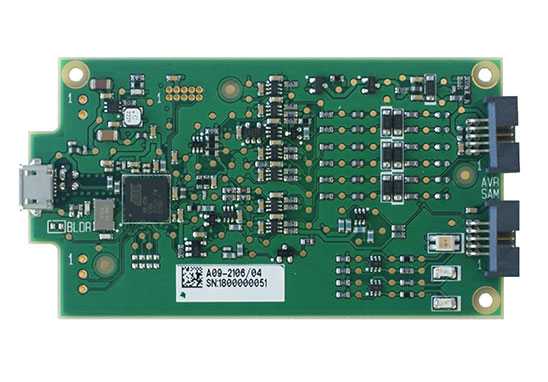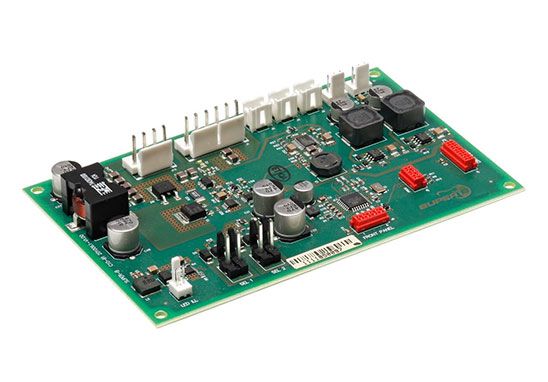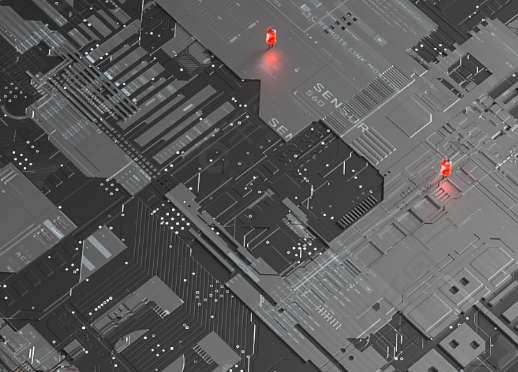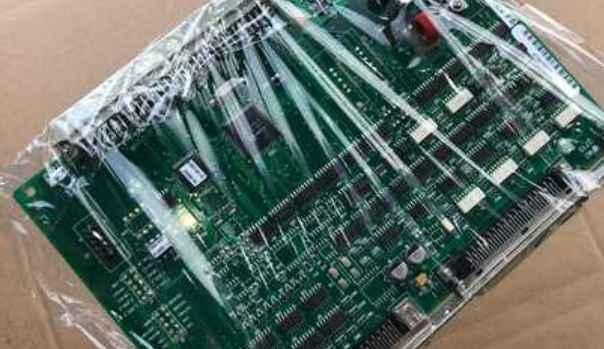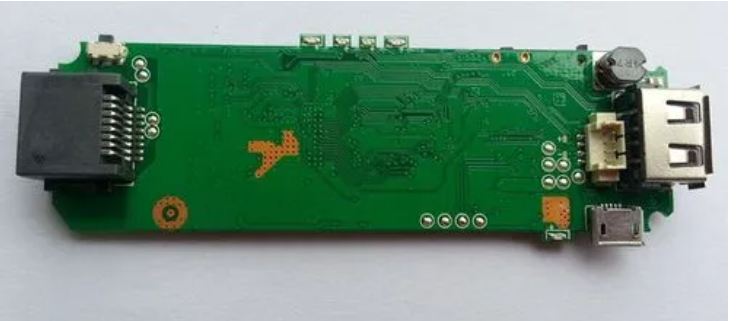
Why do you want to make PCB Mosaic board?
In order to know which way PCB board is good, we should first understand why the board is assembled. The board is to meet the production needs. For example, some customers' boards are too small, which does not meet the requirements of fixture making. There are some special-shaped PCB board, the board is also in order to improve the utilization of PCB board, so as to avoid waste, reduce costs. When SMT is applied, the welding efficiency of SMT can be effectively improved.
What are V-cuts and stamp holes?
V-cut refers to the V-shaped dividing line between two veneers and between the veneer and the process edge, in the shape of "V"; Break apart after welding.
The stamp hole is the motherboard plate inside, between the small board and the small board need to be connected, in order to facilitate cutting, the rib will be opened up some holes, similar to the edge of the stamp hole.
Which is better, stamp hole or V-CUT?
In fact, each has its own advantages, each has its own disadvantages.
When double-sided V-shaped groove is used, the depth of V-shaped groove should be controlled at about 1/3 (the sum of the two sides of the groove), requiring accurate groove size and uniform depth.
In the use of stamp holes, attention should be paid to the edge should be evenly distributed around each piece of the board, in order to avoid welding due to uneven force caused by PCB board deformation.
The position of the stamp hole should be close to the inside of the PCB board to prevent the residual burr at the stamp hole after the separation of the board from affecting the customer's complete machine assembly.
For irregular PCB board like round, V-CUT is not possible, so it is necessary to use stamp holes to connect the board, so stamp holes are used more in shaped board.
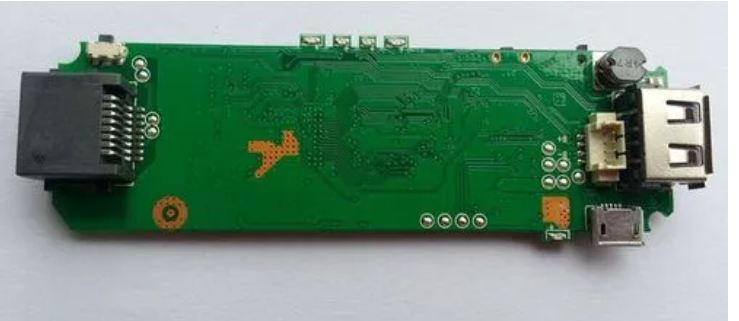
2. How to route key signals of PCB design?
In the PCB design and wiring rules, there is a principle of "key signal line priority", that is, power supply, analog signal, high-speed signal, clock signal, differential signal and synchronous signal and other key signals priority wiring. Next, Shenzhen PCB design company -kingford will introduce the wiring requirements of these key signals in detail.
How to route the key signals of PCB design
1. Requirements for analog signal wiring
The main characteristic of analog signal is poor anti-interference. The protection of analog signal is mainly considered when wiring.
The processing of analog signal is mainly reflected in the following points:
1. In order to increase its anti-interference ability, the cable should be as short as possible.
2. Impedance control requirements can be abandoned for some analog signals, and the wiring can be bolded appropriately.
3. Limit the wiring area, try to complete the wiring in the analog area, away from digital signals.
Two, high-speed signal wiring requirements
1. Multi-layer wiring
High speed signal routing circuit often has high integration, high wiring density, using multilayer board is not only necessary for wiring, but also an effective means to reduce interference. Reasonable selection of layers can greatly reduce the size of the printing board, can make full use of the intermediate layer to set the shield, can better realize the nearby grounding, can effectively reduce the parasitic inductance, can effectively shorten the transmission length of the signal, can greatly reduce the cross interference between signals, etc.
2. The less bent the lead, the better
The less lead bending between pins of high-speed circuit devices, the better. High-speed signal wiring circuit wiring wire is best to use full straight line, need to turn, can be used 45° broken line or arc turning, this requirement in low-frequency circuit is only used to improve the steel foil fixation strength, and in high-speed circuit, meet this requirement can reduce the high-speed signal external emission and mutual coupling, reduce signal radiation and reflection.
3. The shorter the lead, the better
The shorter the lead between the pins of the high-speed signal routing circuit device, the better. The longer the lead, the larger the distributed inductance and capacitance value, which will have a lot of influence on the system's high-frequency signal passing, but also change the characteristic impedance of the circuit, resulting in reflection and oscillation of the system.
4. The less alternations between lead layers, the better
The less interlayer alternations between pins of high-speed circuit devices, the better. The so-called "the less interlayer alternations of leads, the better" means that the fewer holes used in the connection of components, the better. It has been measured that one hole can bring about 0.5pf of distributed capacitance, resulting in a significant increase in circuit delay, reducing the number of holes can significantly improve the speed.
5. Pay attention to parallel cross interference
High-speed signal wiring should pay attention to the "cross interference" introduced by the signal line short distance parallel wiring. If parallel distribution cannot be avoided, a large area of "ground" can be arranged on the opposite side of the parallel signal line to greatly reduce the interference.
6. Avoid branches and stumps
High-speed signal wiring should avoid branching or forming Stub. Stumps have a great effect on impedance and can cause signal reflection and overshoot, so we should usually avoid stumps and branches in the design. The Daisy chain wiring will reduce the impact on the signal.
7. Route signal cables to the inner floor
High frequency signal line walking on the surface is easy to produce large electromagnetic radiation, and also easy to be interfered by external electromagnetic radiation or factors. The high frequency signal line is routed between the power supply and the ground wire, through the absorption of electromagnetic wave by the power supply and the bottom layer, the radiation generated will be much reduced.
Three, clock signal wiring requirements
In digital circuit design, the clock signal is a signal that oscillates between high and low states and determines the performance of the circuit. Clock circuit plays an important role in digital circuit and is the main source of electromagnetic radiation. The processing method of clock is also the need for special attention in PCB wiring. By clarifying the clock tree at the beginning and identifying the relationships between the various clocks, you can do a better job of wiring. And clock signal is often the difficulty of EMC design, especially the project that needs EMC test index.
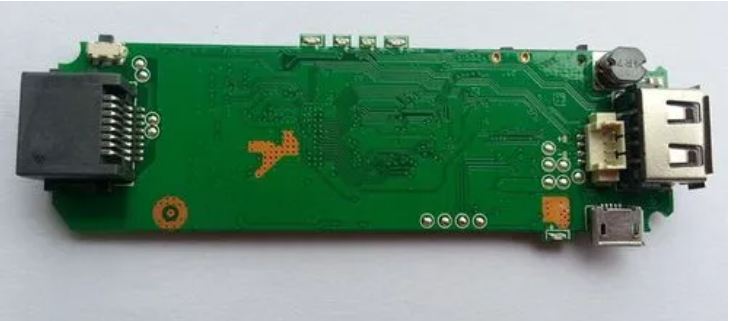
In addition to the conventional impedance control and isometric requirements for clock lines, the following issues need to be noted:
1. Select the preferred routing layer for clock signals.
2 clock signal as far as possible not across the division, not to mention along the division area wiring.
3. Ensure that the distance between clock signals and other signals is at least 3W.
4. There are EMC requirements of the design, long line as far as possible to choose the inner wiring.
5. Pay attention to the clock signal end matching.
6. Do not use a Daisy chain structure to transmit the clock signal. Instead, use a star structure where all the clock loads are directly connected to the clock power driver.
7. All the wires connected to the crystal oscillator input/output should be as short as possible to reduce noise interference and the influence of distributed capacitance on the crystal oscillator.
8. Crystal capacitor ground wire should be connected to the device with as wide and short a wire as possible; The digital ground pin closest to the crystal oscillator should minimize overhole.
9. In digital circuits, the usual clock signals are those with fast edge changes and large external crosstalk. Therefore, in the design, the clock line should be surrounded by ground lines and ground lines to reduce the distribution capacitance, so as to reduce crosstalk; For the high frequency signal clock, try to use the low voltage time-sharing signal and ground wrapping mode. Attention should be paid to the integrity of the ground punching.
Four, differential signal wiring requirements
Differential signals, also known as differential signals, use two identical, opposite polarity signals to transmit one data line, and rely on the level difference between the two signals for judgment. In order to ensure that the two signals are completely consistent, the wiring should be kept parallel, line width and line spacing remain unchanged.
5. How to route key signals of PCB design
On a circuit board, differential wiring must be two wires of equal length, equal width, close together, and at the same level.
1. Isometric length: isometric length means that the length of two lines should be as long as possible, in order to ensure that the two differential signals maintain opposite polarity at all times. Reduce the common-mode component.
2. Equal width and isometric distance: Equal width means that the cable widths of two signals must be consistent, and equal distance means that the distance between two lines must be unchanged and parallel.
Reminder: as far as possible for clock signals, high frequency signals, sensitive signals and other key signals to provide a special wiring layer, and ensure its minimum loop area. The signal quality is guaranteed by shielding and increasing the safety distance.
kingford is a professional PCB design company engaged in electronic products layout layout design, mainly undertake multi-layer, high density PCB design and circuit board design proofing business. Proficient in the use of market mainstream PCB design software, professional and efficient communication to ensure the progress of PCB design, to help you seize the market opportunity one step earlier!


